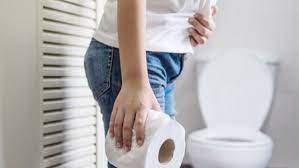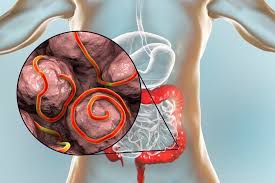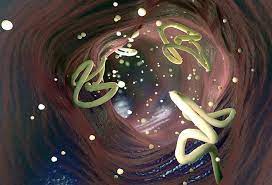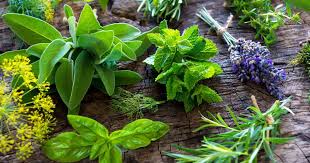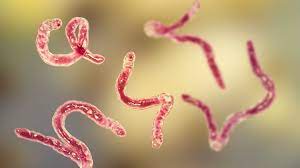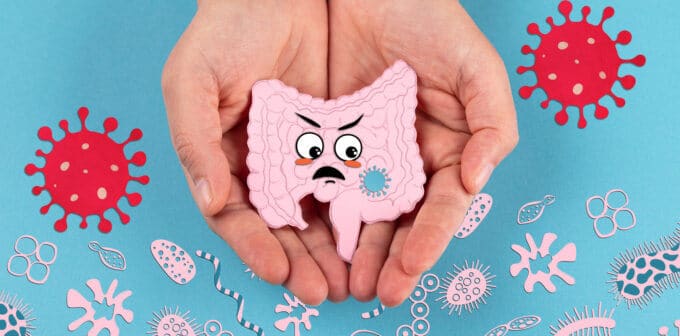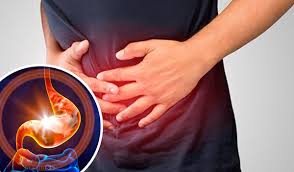Content of the Article
- Types of intestinal worms
- Symptoms of worms in the intestine
- What causes intestinal worms?
- Who gets intestinal worms?
- What are intestinal worm complications?
- How is an intestinal worm diagnosed?
- Intestinal worm treatment
- Intestinal Worm Home Natural Treatment
- intestinal worm nutrition
- How to prevent intestinal worm?
Do you have frequent stomach upsets? Do you always feel nauseous and have diarrhea?
These symptoms intestinal wormpoints to it.
Intestinal worm alias parasitic wormis found in our intestines. They are organisms that feed on our bodies. The main types of worms that cause parasitic infestations are pinworms, roundworms (Ascaris lumbricoides), tapeworms (Cestoda), hookworms (Necator americanus) and flatworms (Platyhelminthes).
Intestinal worm negatively affect human life. It can even cause death.
Intestinal worm It is a common problem of people living in the world. It is more common in poor countries where health services are poor.
Types of intestinal worms
Pinworm: It is transmitted through objects such as towels, bed linen, and clothing. When you touch these objects and then touch your mouth, the worms move into the intestines. Then it spreads in this region.
Tapeworm (Cestoda): The main cause of tapeworm is drinking water contaminated with this parasite. Eating pork or beef raw or undercooked is also a reason. Tapeworms attach themselves to the intestines. It lays eggs and spreads in humans.
Roundworm (Ascaris lumbricoides): It is transmitted when a healthy person comes into contact with feces containing this parasite. It also happens to people who do not pay attention to their cleanliness. Studies indicate that roundworms can cause more than 60.000 deaths per year.
Hookworm (Necator americanus): Hookworms are spread through soil or feces contaminated with this parasite. Walking barefoot on the ground can cause hookworms to settle in the intestines.
Flukes (Platyhelminthes): They are leaf-shaped flatworms. It is less common in humans than animals. This is due to the consumption of water contaminated by the parasite.
Symptoms of worms in the intestine
experts, different intestinal wormsHe says it can cause different symptoms. Symptoms may also differ from person to person.
Some have no symptoms, some have mild symptoms. Symptoms can also be severe. Worm in the gut If present, the symptoms are:
- Nausea
- Diarrhea
- Mumps
- Anorexia
- blood in stool
- Weight loss
- Abdominal pain
- Dysentery
- stomach tenderness
- Weakness
- fever or chills
- Allergic reactions
- Anemia
- Headache
- worm in stool
- muscle or joint pain
- Swelling
- Seizures (in severe cases)
- cough or wheezing
- Conjunctivitis
What causes intestinal worms?
intestinal wormsThere are many reasons for its spread. E.g:
- Eating undercooked or raw meat
- eating spoiled meat
- Eating ripe fruit
- Not paying attention to personal hygiene
- Drinking water contaminated with parasitic eggs or larvae
- Contact with feces containing the parasite
- Contact with contaminated soil
- Contact with infected objects such as bed linen, clothing, or towels
Who gets intestinal worms?
Intestinal wormThere are some risks that cause infection:
- not paying attention to hygiene
- Weak immune system
- to be old
- immune-suppressing conditions, such as AIDS
- Playing or staying in soil for a long time in contaminated soil
What are intestinal worm complications?
Intestinal worm If left untreated for a long time, it can cause side effects such as:
- nutrient deficiency
- Congestion in the intestines
- Pancreatitis
- Systemic cysticercosis or the development of cysts that can cause problems with the central nervous system and skeletal muscle.
How is an intestinal worm diagnosed?
Intestinal worm Diagnostic methods are as follows:
Stool test: Parasites are detected in stool samples.
Blood test: Parasites are detected in the blood.
Colonoscopy: The large and small intestines are evaluated with a tube-like device to look for signs of parasites.
Intestinal worm treatment
With simple changes in people with strong immune systems intestinal wormThe spread decreases by itself. Treatment methods are as follows:
Medicines: Medicines such as albendazole and praziquantel.
Operation: This method is recommended when the parasites spread to the large area of the intestines.
Lifestyle changes: Paying attention to personal hygiene, drinking clean water, eating fresh, cooked and clean food…
Intestinal Worm Home Natural Treatment
Turmeric
With its antiseptic and anti-microbial properties turmeric, all kinds intestinal wormdestroys it. Add a teaspoon of turmeric powder to a glass of buttermilk. If you drink it every day, you will get rid of parasites in the body.
Pumpkin seeds
Pumpkin seeds It contains a compound called cucurbitacin that helps clear all parasites from the body. Mix one tablespoon of roasted pumpkin seeds with half a glass of water and coconut milk. Drink this mixture on an empty stomach every morning for a week.
Garlic
GarlicIt has anti-inflammatory properties that help get rid of parasites. Chew raw garlic or drink garlic tea on an empty stomach every day for about a week.
Clove
Clove, intestinal worm and has antiseptic and anti-parasitic properties that destroy their eggs. Boil two or three cloves in a saucepan with a glass of water. After boiling for 5 minutes, strain. Drink this liquid 3 to 4 times a day for a week.
Carrot
Carrot, intestinal worm It is a source of beta-carotene, which destroys eggs. Eating carrots on an empty stomach for a week, intestinal wormdestroys it.
intestinal worm nutrition
What to eat
- Green leafy vegetables
- Scallion
- Pineapple
- Fish rich in fatty acids
- Probiotic-rich foods
Things to avoid
- Sugar
- Refined carbohydrates
How to prevent intestinal worm?
Intestinal wormWash your hands regularly with soap and hot water before and after using the toilet, before preparing or eating food. Also pay attention to food safety:
- Do not eat raw fish and meat. Cook meat well.
- Wash and peel raw fruits and vegetables.
- Make sure to wash the food that has fallen on the floor.
- Avoid contact with contaminated soil.
- For boiled or purified water.


